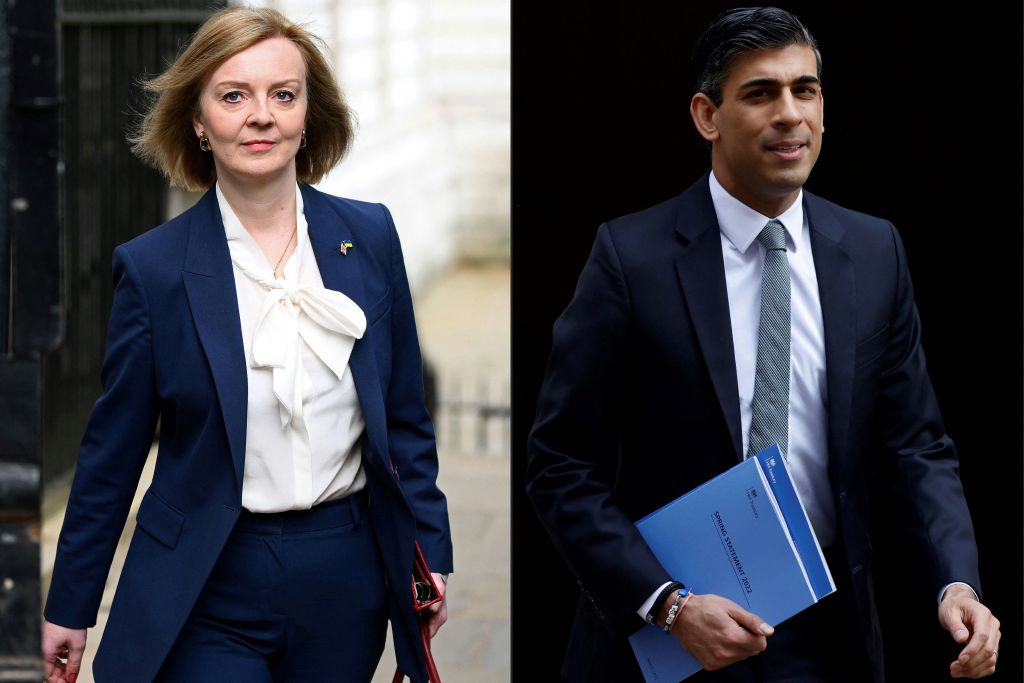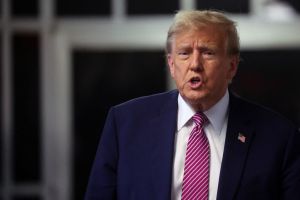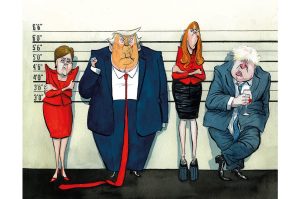Boris Johnson’s departure has left a vacancy at the top of British politics. For so long, he seemed to be the “teflon Tory” who could get away with anything; now a raft of scandals have brought him back down to earth. His resignation earlier this month triggered a leadership election among his Conservative party colleagues in the House of Commons. After a week of ballots, just two now remain: Rishi Sunak and Liz Truss. That pair of names will go to the party’s 160,000 members in constituencies across the country to decide which one will be Britain’s next prime minister. The former would be Britain’s first Asian premier; the latter its third female one.
The story of Sunak is one of empire: his grandparents were born in British India and migrated from East Africa with their children to the UK in 1960s. Sunak’s father was a family doctor and his mother a pharmacist. They worked hard to send their son to Winchester College, an elite boarding school where he became head boy. He did shifts at a local curry house before studying Politics, Philosophy and Economics (PPE) at Oxford University. A career in banking followed: stints at Goldman Sachs and a Mayfair hedge fund were punctuated with an MBA at Stanford on a prestigious Fulbright scholarship. It was in sunny California that he met his wife, Akshata Murthy, the daughter of an Indian tech billionaire.
Elected to parliament in 2015, Sunak’s rise was rapid. Within five years, he was chancellor, the second most powerful post in government and roughly equivalent to America’s secretary of the treasury, at the age of 39. His youth, slick suits and financier past prompted comparisons to Emmanuel Macron. Sunak won praise for measures to avoid mass redundancies during Covid but in recent months has come in for heavy criticism over the subsequent cost-of-living crisis. His personal rankings have dropped over questions about policy failings, his family’s tax affairs and his decision to hold a US Green Card until late last year.
It was Sunak’s resignation a fortnight ago that triggered the downfall of Boris Johnson’s government, and it earned him the enmity of those who remained loyal to Johnson. Intelligent, amiable and polished, Sunak won the most MPs out of any candidate. But some in his party remain wary of the man they call “Fishy Rishi.” As one commentator remarked this week, “I’m just not sure Britain is quite ready for basically its first Californian, Silicon Valley, VC-loving Prime Minister.”
Liz Truss’s rise to the top of British politics has been less assured. Her political journey took her from chanting “Maggie, Maggie, Maggie, out, out, out” as a child to addressing the Conservative party conference in 1997 with Margaret Thatcher in the audience. Born into a left-wing academic family, she attended a state school in the north of England and marched against nuclear weapons as a child in the 1980s. Like Sunak, she did PPE at Oxford; unlike him, she was a staunch member of the left-leaning Liberal Democrats, demanding the abolition of the royal family and the legalization of cannabis.
Thereafter, her choices became more conventional: she married a fellow accountant and spent spells as a commercial manager at Shell and an economics director at Cable & Wireless. Her political career advanced slowly. Defeated twice for parliament in 2001 and 2005, she finally won nomination for the winnable South West Norfolk seat in 2009. She was elected the following year, having survived deselection over reports of an extramarital affair with a sitting MP.
Energetic, eager and keen to impress, Truss impressed as first an active backbencher and then a junior minister at education. Cabinet promotion under Prime Minister David Cameron came in 2014. She served in the Environment and Justice departments, despite a much-mocked speech at one party conference where she declared it “a disgrace” that Britain imported “two thirds of our cheese.”
She was demoted by Cameron’s successor Theresa May to the most junior Cabinet post at the Treasury in 2017 but flourished in her next role under May’s replacement Boris Johnson. As international trade secretary, she made a name for herself, jetting around the world to sign post-Brexit trade deals, despite campaigning to stay in the EU in 2016. Her Instagram-savvy snaps helped make her a favorite of the Conservative grassroots. Last year, she was promoted to foreign secretary, in which capacity she’s billed herself as a China hawk and Euroskeptic, championing a “network of liberty” to counter Beijing’s rise. Power-dressing and determined, it’s no surprise she’s earned comparisons to Margaret Thatcher, the leader she once opposed.
The battle between Truss and Sunak isn’t just about personalities: both contenders are fighting over what it means to be a conservative. With inflation at 10 percent and taxes at a 70-year high, the economy is the key battleground. Both agree taxes must be cut but the key question is when: Truss wants £30 billion immediately but Sunak prioritizes “sound money” and warns that inflation must be defeated first. The pair are both social liberals but Truss has much preferred to engage in the “culture wars,” railing against “the illiberalism of cancel culture” and “woke aggression.” She is also seen as more critical of China than Sunak, the preferred choice of much of the business community.
As polls stand, the Conservative membership seem to prefer Truss’s vision to that of Sunak. But with six weeks to go until the results are announced, there is still much to play for in the battle for the premiership and the party’s soul.


















